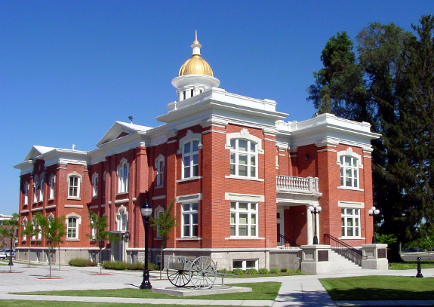During a regular meeting Tuesday, members of the Cache County Council rejected a proposal to increase county property taxes by 9.45 percent to raise revenue by nearly $1.5 million in 2022.
CACHE COUNTY – During a regular meeting Tuesday, the Cache County Council passed up the opportunity to vote the county a nearly $1.5 million increase in property taxes.
Within minutes after the meeting’s opening, council member Gordon Zilles moved that a Nov. 9 public hearing to discuss a proposed property tax increase for the 2022 county budget be cancelled. That motion was unanimously approved, following discussion of the tax hike issue at a workshop session earlier in the day.
When the proposed tax hike popped up later in the meeting’s agenda under Initial Proposals for Consideration, the panel’s members again dismissed it with minimal discussion.
That proposal was intended to “increase the property tax rate above the certified tax rate by approximately 9.45 percent in order to generate an estimated $1,490,000 in additional property tax revenue for the purpose of keeping up with inflation.”
“We have been working very hard as a council to ensure that we didn’t have to do this,” council chair Gina H. Worthen explained. “We also appreciate our finance director (Cameron Jensen) working toward that as well. So I don’t know if we really need any discussion of this issue.”
Council member Karl B. Ward shared that opinion.
“We have sufficient funds from other sources,” Ward said. “So there’s no need to raise property taxes … or to burden our citizens any further.”
The primary source of those funds would be economies within other budget accounts, according to council member David L. Erickson.
“I want to pre-thank the various departments that are going to be donating portions of their budgets,” Erickson explained. “We appreciate that.
“One of the things that I was concerned about is that … line about ‘for the purpose of keeping up with inflation.’ When I read that, it bothered me. When inflation starts, that’s often the best time to tighten things up. We shouldn’t raise taxes just because of inflation.”
Worthen acknowledged, however, that inflation will be a factor in the county’s 2022 budget.
“I think we’re going to see a lot of inflation next year,” she added. “And our citizens are going to appreciate that we did not raise our property tax, especially with the recent rise in housing evaluations.”
While the state Truth-in-Taxation statute does not technically limit property taxes, it does require local officials to notify their citizens of proposed property tax increases and hold announced forums to hear public responses.
That statute is revenue-driven rather than a rate-driven system, according to the Utah Taxpayers Association.
As the value of existing property increases to keep pace with residential and commercial markets, property tax rates generally decrease.
Such automatic reductions in property tax rates keep local governments from getting a revenue windfall simply because the value of existing properties within their boundaries have increased.
Those reduced property tax rates are known as the certified tax rates.
Thanks to the Truth-in-Taxation law, local governments must go through its mandated notification and hearing process if they want to exceed the certified tax rate for their residential and commercial properties.

